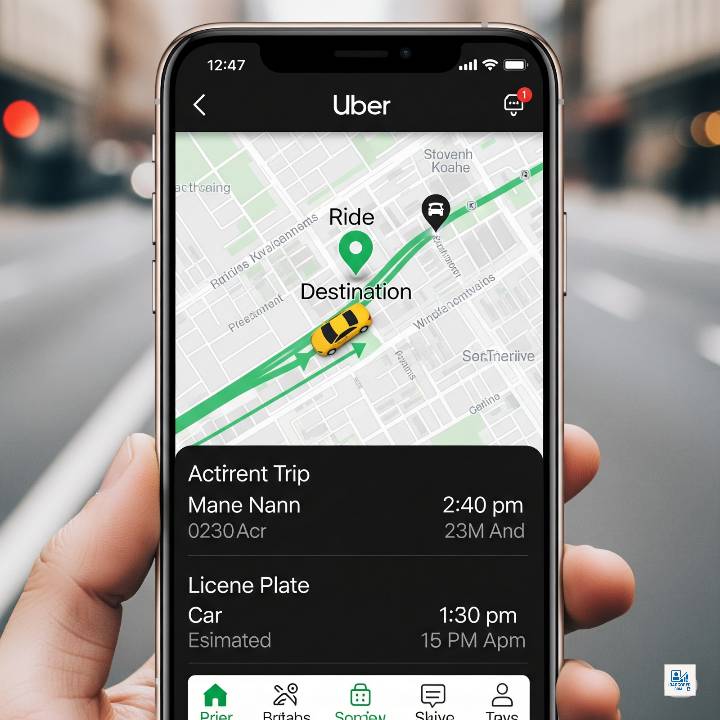What is the Difference Between an Investment Bank and a Broker Dealer? [Explained Simply]
What is the Difference Between an Investment Bank and a Broker Dealer? Now you can find out how these financial institutions differ in roles, regulations, and services in our in-depth comparison guide.
What is the Difference Between an Investment Bank and a Broker Dealer?
Financial Institutions
Understanding the modern financial world can feel like deciphering a foreign language. Among the most commonly misunderstood roles are those of investment banks and broker dealers. These entities play vital roles in capital markets, but they operate with vastly different goals, responsibilities, and clientele. If you’re a business owner, investor, or just someone aiming to grasp financial basics, knowing the difference between an investment bank and a broker dealer can empower you to make smarter decisions.
Why Understanding the Distinction Matters
Both institutions move massive amounts of capital daily, but their purpose, function, and clients differ significantly. Misunderstanding these roles could mean picking the wrong financial partner or making suboptimal investment choices.
Brief History of Financial Intermediaries
The evolution of these roles dates back centuries, but the modern distinctions became especially pronounced after regulatory shifts like the Glass-Steagall Act of 1933 and its eventual repeal in 1999. These laws shaped how firms either separated or combined investment banking and brokerage services.
What Is an Investment Bank?
Investment banks are financial powerhouses that primarily work with large corporations, governments, and institutional investors.
![What is the Difference Between an Investment Bank and a Broker Dealer? [Explained Simply] 2 The Difference Between an Investment Bank and a Broker Dealer](https://loadcoded.com/wp-content/uploads/2025/08/sketch-1754320768441-300x300.jpg)
Core Functions of Investment Banks
Their services typically include:
- Mergers and Acquisitions (M&A) Advisory
- Initial Public Offerings (IPOs)
- Underwriting of securities
- Capital raising and restructuring
- Market-making and proprietary trading
Key Examples of Top Global Investment Banks
Some of the most well-known names in investment banking include:
JPMorgan Chase (investment banking division)
Services for Corporations and Governments
Unlike a broker dealer that sells to everyday investors, investment banks specialize in structuring massive deals like helping Apple raise $10 billion in bonds or advising Disney on a merger.
What Is a Broker Dealer?
A broker dealer is an individual or firm in the business of buying and selling securities for clients (broker) and for its own account (dealer).
![What is the Difference Between an Investment Bank and a Broker Dealer? [Explained Simply] 3 What is the Difference Between an Investment Bank and a Broker Dealer](https://loadcoded.com/wp-content/uploads/2025/08/sketch-1754320768896-300x300.jpg)
Role of Broker Dealers in the Financial Ecosystem
They operate in both retail and institutional spheres and are responsible for executing trades, providing investment advice, and maintaining compliance with financial regulations.
Retail vs Institutional Services
Retail broker dealers serve individual investors through:
- Stock and bond transactions
- Retirement accounts and financial planning
- Access to trading platforms (e.g., Fidelity, E*TRADE)
Institutional broker dealers serve funds, pensions, or hedge funds by executing large trades and managing liquidity.
Registered Representatives and FINRA Licensing
Broker dealers must register with the Financial Industry Regulatory Authority (FINRA) and the Securities and Exchange Commission (SEC). Individuals selling on their behalf are often called “registered reps” and must pass exams like the Series 7.
Key Differences Between Investment Banks and Broker Dealers
| Criteria | Investment Bank | Broker Dealer |
|---|---|---|
| Primary Clients | Corporations, governments, institutional investors | Individual investors, small institutions |
| Main Services | M&A, IPOs, underwriting, capital advisory | Buy/sell securities, financial advice |
| Revenue Source | Fees, commissions, proprietary trading gains | Commissions, trading spreads |
| Regulatory Oversight | SEC, sometimes OCC (U.S.), international regulators | FINRA, SEC |
| Licensing Requirements | Institutional-level clearances | FINRA exams (Series 7, Series 63, etc.) |
| Risk Profile | Higher risk, tied to large-scale corporate events | Lower risk, client-based investments |
Overlapping Functions and Grey Areas
When Investment Banks Act as Broker Dealers
Many large firms wear both hats. For instance, JPMorgan has a brokerage division and an investment banking arm. These integrated models let them serve a full range of clients from retail to global corporations.
Integrated Financial Service Firms
These hybrid firms are often called “universal banks” and include:
- Bank of America Merrill Lynch
- Deutsche Bank
- UBS
Real-World Examples and Case Studies
Goldman Sachs: Bank or Broker Dealer?
Goldman Sachs operates both divisions. It advises on multi-billion-dollar M&A deals while offering trading services to hedge funds and institutional investors.
Merrill Lynch: Blending Both Worlds
A historical leader in wealth management, Merrill Lynch merged its broker dealer services with investment banking after joining Bank of America, blurring the traditional lines.
Investment Banking vs. Broker Dealing: Pros and Cons
From a Career Perspective
| Criteria | Investment Banking | Broker Dealing |
|---|---|---|
| Work Hours | Very long, often >80 per week | More predictable |
| Compensation | High base + large bonuses | Moderate base + commissions |
| Stress Level | High (deal pressure, market shifts) | Medium (client expectations) |
| Entry Requirements | Ivy League + MBAs often preferred | FINRA licenses, Bachelor’s OK |
For Clients and Investors
- Broker dealers are ideal for individual investors who need access to financial markets.
- Investment banks are critical for large institutions looking to raise capital or restructure.
How to Choose Between an Investment Bank and Broker Dealer
Factors Businesses Should Consider
- Scale of financing needs
- Type of capital (debt vs equity)
- Complexity of transaction
Considerations for Individual Investors
- Access to products
- Cost of services
- Trust and transparency
Regulatory Bodies Governing Both Entities
| Regulatory Body | Role |
|---|---|
| SEC | Oversees securities regulation |
| FINRA | Regulates broker dealers and registered reps |
| OCC (Office of Comptroller) | Monitors national banks |
| International equivalents | FCA (UK), ESMA (EU), MAS (Singapore) |
Frequently Asked Questions
1. What licenses do broker dealers need?
Broker dealers must register with FINRA and often require Series 7, Series 63, and other specific licenses depending on the state and service.
2. Can an investment bank operate as a broker dealer?
Yes, many do. Firms like Morgan Stanley and Goldman Sachs operate as both under SEC and FINRA regulations.
3. Which is more profitable banking or brokering?
It depends on the market. Investment banking yields large fees during IPO booms; broker dealers thrive on volume trading and stable commissions.
4. Are broker dealers safer than investment banks?
Generally, yes due to their limited exposure to high-risk, large-scale deals.
5. What are examples of hybrid firms?
Bank of America Merrill Lynch, UBS, and JPMorgan Chase are major hybrids.
6. Is one more regulated than the other?
Both are heavily regulated, but broker dealers face stricter day-to-day oversight from FINRA.
Ending
The lines between investment banks and broker dealers can blur, especially in today’s age of financial conglomerates. But understanding the key differences client base, services, regulatory oversight, and revenue models can empower you to make smarter investment and career decisions. Whether you’re navigating Wall Street or managing your personal portfolio, clarity is key.
Thank you for the click and reading through our blog and your comments are expected.
![What is the Difference Between an Investment Bank and a Broker Dealer? [Explained Simply] 1 sketch 1754313180238](https://loadcoded.com/wp-content/uploads/2025/08/sketch-1754313180238.jpg)




![Top 10 Easy Ways A Beginner Can Make Money Online With SEO in 2025 [Proven Strategies] 20 IMG 20250727 WA0060](https://loadcoded.com/wp-content/uploads/2025/07/IMG-20250727-WA0060-150x150.jpg)



![Top 10 Best Logistics Companies to Work For in 2025 [Ranked & Reviewed] 24 sketch 1754242848456](https://loadcoded.com/wp-content/uploads/2025/08/sketch-1754242848456-150x150.jpg)



![Top 10 Best Logistics Companies to Work For in 2025 [Ranked & Reviewed] 57 Top 10 Best Logistics Companies to Work For in 2025 [Ranked & Reviewed]](https://loadcoded.com/wp-content/uploads/2025/08/sketch-1754242848456.jpg)


